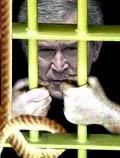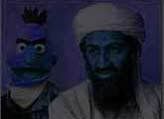| Find |
Sunday, 2 March 2008
Israeli troops train for next battle in South Lebanon
Officers say merkava tanks now have better protection ISRAEL'S NORTHERN BORDER: Guns ablaze, a massive Israeli Merkava battle tank charges toward its target, but eventually retreats behind a curtain of smoke after the enemy responds with anti-tank missiles. The missiles were theoretical in this military maneuver near the Lebanese border, but the exercise and the protective tactics reflect Israel's very real concerns about the threat posed by Lebanon's Hizbullah.
ISRAEL'S NORTHERN BORDER: Guns ablaze, a massive Israeli Merkava battle tank charges toward its target, but eventually retreats behind a curtain of smoke after the enemy responds with anti-tank missiles. The missiles were theoretical in this military maneuver near the Lebanese border, but the exercise and the protective tactics reflect Israel's very real concerns about the threat posed by Lebanon's Hizbullah.
"We learned our lessons from the Lebanon war," said "Tempest" Armor Battalion commander Eldar, who declined to give his last name.
The 34-day war, which was launched by Israel in July 2006 after Hizbullah captured two Israeli soldiers in a cross-border attack, killed more than 1,200 Lebanese, mostly civilians, and more than 160 Israelis, most of them soldiers.
Amid renewed tensions and a political crisis in Beirut, the United States said on Thursday it was deploying the warship USS Cole off Lebanon in the eastern Mediterranean as a signal aimed at bolstering regional stability.
The 2006 war left Hizbullah gloating that it had inflicted a blistering defeat on the Middle East's most powerful military, which had been taken by surprise by the preparedness and fighting capability of the Shiite group. In a major blow to Israel's military establishment, the army was unable to break the back of the militants, who kept up a daily barrage of rockets against northern Israel.
A UN-brokered cessation of hostilities went into effect on August 14, 2006, but tension has risen since the assassination of a top Hizbullah commander in Syria.
Hizbullah leader Sayyed Hassan Nasrallah blamed Israel for the February 12 killing of Imad Mughniyeh in a car bomb in Damascus. Nasrallah said his party will not stand silent in face of Isreali threats or attacks. More
Posted at
12:37
![]()
Post Title: Israeli troops train for next battle in South Lebanon
![[Zionazis-1.jpg]](https://blogger.googleusercontent.com/img/b/R29vZ2xl/AVvXsEg_x8DOGucgHQmfJJujuK_oYJdxhEnskhQqt-Og7lSk52HeaDQYzW8NQWfdpHmPgj_FJN0jJ3tz1prR1jVZHdHky2HDQxxcs4LVxX0DtAt3fG0sfRr6MDx7Sz8cJNjl0k0RS9TbCjangQ/s1600/Zionazis-1.jpg)




